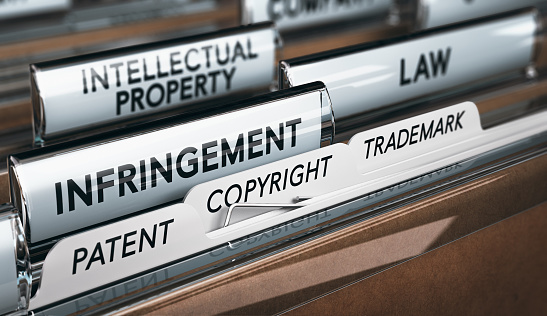Recent Articles
The 'License as Tax' Fallacy
Article, Spring 2022
Unreasonable: A Strict Liability Solution to the FTC's Data Security Problem
Article, Spring 2022
The Ping-Pong Olympics of Antisuit Injunction in FRAND Litigation
Article, Spring 2022
Content Moderation Remedies
Article, Fall 2021
An Empirical Study: Willful Infringement & Enhanced Damages in Patent Law After Halo
Article, Fall 2021
Recent Notes
The Best Data Plan Is to Have a Game Plan: Obstacles and Solutions to Reaching International Data Privacy Agreements
Note, Spring 2022
Mental Health Mobile Apps and the Need to Update Federal Regulations to Protect Users
Note, Spring 2022
Blog Posts
REMS Helps A Speedy Launch of CAR-T Cell Therapy
I first learned of CAR-T cell therapy in 2015 while working in an immunology lab. It immediately caught my attention as a brilliant, unconventional cancer treatment: it modifies a patient’s own T cells and enlists them to fight cancer. T cells can recognize non-self antigens presented on a cell’s surface, label those cells exogenous, and eliminate them. Scientists have developed CAR-T cell therapy by utilizing these unique characteristics of T cells.
Physical Touch in a Virtual World
Virtual reality is more lifelike than ever before — not only can users see and hear the virtual world, but they can now feel and smell it too. Two major industries embracing this technology are gaming and mental health treatment.
Can Blockchain Technology Change How IP Rights are Granted and Sold?
When the term blockchain is thrown around, most people think about Bitcoin, Ethereum, and other cryptocurrencies that often populate headlines. While blockchain technology gained popularity and recognition in the area of cryptocurrencies and financial transactions, at its core, the technology has applications far beyond this narrow subset.
Stretched Beyond the Breaking Point: The CFAA and iPhone Batteries
Did Apple hack users’ devices? That is the allegation in a class action lawsuit filed late last year. Specifically, the plaintiffs in In re Apple Inc. Device Performance Litig., 347 F. Supp. 3d 434, 451 (N.D. Cal. 2018) allege that Apple’s battery-slowing iOS updates violated a federal hacking statute, the Computer Fraud and Abuse Act (CFAA). This is the latest effort to stretch a broad, vague, and inconsistently-enforced law to cover new circumstances. This case illustrates the urgent need to write a statute that reflects today’s technological reality.
Something Like Deference: PTAB and 1-Way Issue Preclusion
The patent law system currently has an interesting parallel track open for those seeking to oppose a patent. That parallel track runs through both litigation in the district courts and Inter Partes Review [IPR] at the Patent Trial and Appeals Board [PTAB], a part of the Patent and Trademark Office [PTO]. A little under one year ago, the Supreme Court decided Oil States Energy, in which it stated that IPRs were not unconstitutional.
Recognizing Your Privacy Rights: Facial Recognition Technology and Third Party Doctrine
To understand how facial recognition technology interacts with a seemingly abstract standard of constitutional protection, a quick note about the Fourth Amendment is helpful.


